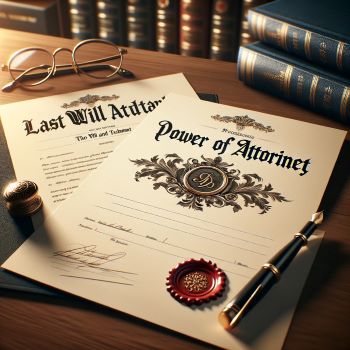In Queensland, Australia, there are two primary types of powers of attorney (POA): General Power of Attorney (POA) and Enduring Power of Attorney (EPOA). Here’s an explanation of the differences between the two:
- General Power of Attorney (POA):
- A General POA is a legal document that authorizes someone (known as the attorney or agent) to make financial and legal decisions on behalf of the principal (the person granting the power).
- It is typically used for specific and short-term purposes, such as managing financial affairs while the principal is out of the country or unable to handle their own affairs temporarily.
- A General POA ceases to be effective if the principal loses mental capacity. This means that if the principal becomes incapacitated, the authority granted under a General POA is no longer valid.
- Enduring Power of Attorney (EPOA):
- An Enduring POA is a legal document that also grants authority to someone (the attorney or agent) to make financial and legal decisions on behalf of the principal.
- However, unlike a General POA, an Enduring POA is specifically designed to continue to be effective even if the principal becomes mentally incapacitated. It remains valid after the principal loses mental capacity, allowing the attorney to continue making decisions on their behalf.
- Enduring POAs can cover both financial matters and personal/healthcare decisions. It’s essential for individuals to specify their preferences and limitations within the document.
- In Queensland, an Enduring POA must be made in the approved form, signed by the principal, and witnessed by an eligible witness (such as a justice of the peace, lawyer, or commissioner for declarations).
A Will and Enduring Power of Attorney (EPOA)
A Will and an Enduring Power of Attorney (EPOA) are both legal documents that deal with different aspects of an individual’s affairs, particularly in Queensland, Australia. Here’s how they differ:
- Will:
- A Will, also known as a Last Will and Testament, is a legal document that outlines how a person’s assets and estate should be distributed after their death.
- It allows individuals to specify who will inherit their property, money, and possessions, as well as who will be responsible for carrying out their wishes (executor).
- A Will only takes effect upon the death of the person who made it (the testator).
- The testator can name guardians for minor children, specify funeral arrangements, and make other provisions.
- It does not grant any authority over financial or legal matters during the testator’s lifetime.
- Enduring Power of Attorney (EPOA):
- An Enduring Power of Attorney is a legal document that grants authority to another person (the attorney or agent) to make financial and/or personal/healthcare decisions on behalf of the principal (the person granting the power).
- Unlike a Will, an EPOA takes effect during the principal’s lifetime and remains valid even if the principal becomes mentally incapacitated.
- The appointed attorney can manage the principal’s financial affairs, including paying bills, managing investments, and selling property, as specified in the document.
- In Queensland, an EPOA can also cover personal and healthcare decisions, such as consenting to medical treatment or deciding on living arrangements if the principal is unable to make such decisions themselves.
- An EPOA ceases to be effective upon the death of the principal.
In summary, the key difference between a General Power of Attorney and an Enduring Power of Attorney in Queensland lies in their durability and scope of authority during incapacity. A General POA is limited and ceases to be effective upon the principal’s incapacity, while an Enduring POA continues to be valid and allows the appointed attorney to act on behalf of the principal even after they become incapacitated. While both a Will and an Enduring Power of Attorney are important legal documents that deal with a person’s affairs, they serve different purposes and operate at different times. A Will governs the distribution of assets and the fulfillment of other final wishes after the testator’s death, while an Enduring Power of Attorney empowers another person to make decisions on behalf of the principal during their lifetime, particularly in the event of incapacity.

